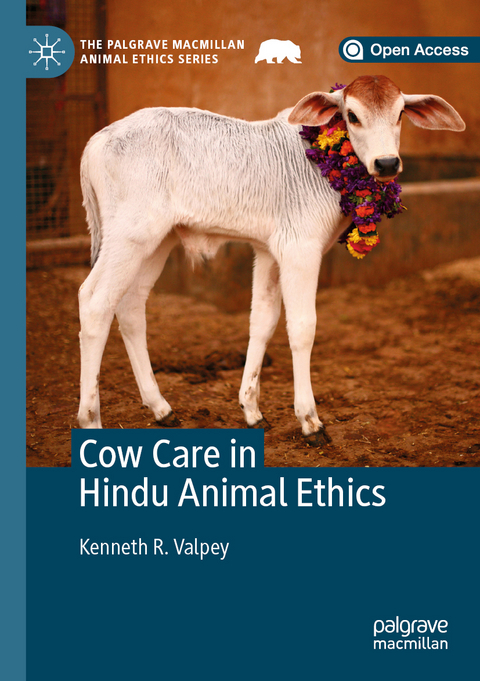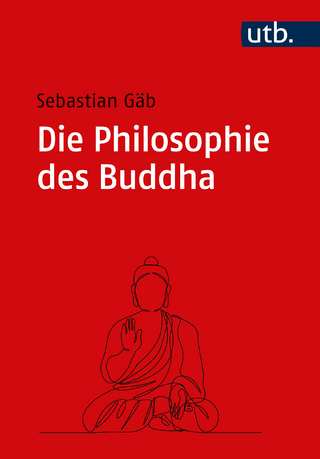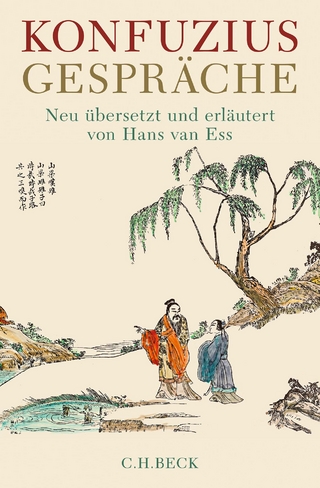
Cow Care in Hindu Animal Ethics
Springer International Publishing (Verlag)
978-3-030-28410-7 (ISBN)
- Open Access
- Offers a focused examination of cow care as a subject of widespread ethical concern in India
- Explores dharma, yoga and bhakti paradigms as starting points for bringing Hindu animal ethics into conversation with contemporary Western animal ethics
- Complements recently developed ethics-of-care thinking to create a solid basis for sustaining all kinds of cow care communities
This open access book provides both a broad perspective and a focused examination of cow care as a subject of widespread ethical concern in India, and increasingly in other parts of the world.
In the face of what has persisted as a highly charged political issue over cow protection in India, intellectual space must be made to bring the wealth of Indian traditional ethical discourse to bear on the realities of current human-animal relationships, particularly those of humans with cows. Dharma, yoga, and bhakti paradigms serve as starting points for bringing Hindu — particularly Vaishnava Hindu — animal ethics into conversation with contemporary Western animal ethics. The author argues that a culture of bhakti — the inclusive, empathetic practice of spirituality centered in Krishna as the beloved cowherd of Vraja — can complement recently developed ethics-of-care thinking to create a solid basis for sustaining all kinds of cow care communities.
Kenneth R. Valpey is a research fellow of the Oxford Centre for Hindu Studies and a research fellow of the Oxford Centre for Animal Ethics, UK. Besides Hindu animal ethics, he has published on Vaishnava Hindu temple worship traditions and on India's enduring favorite of bhakti literature, the Bhagavata Purana.
1. Introduction
2. The Release of Cosmic Cows
2.1. The Rigveda: cows ranging in meaning
2.2. The Upanishads: cows and the acquisition of higher knowledge
2.3. The Bhagavata Purana: cows and the acquisition of higher knowledge
2.4. Krishna and his cows in Vraja
2.5. Vraja bhakti poetry: the buttery sweet language of love
2.6. Concluding reflections
3. Cows in Contested Fields
3.1. Hindu's modern concern for cows
3.1.1. Dayananda Saraswati: “cow-reservoir of compassion”
3.1.2. Mahatma Gandhi: “the law of our religion”
3.1.3. B.R. Ambedkar: compassion denied the “Untouchables”
3.1.4. Bhaktivedanta Swami Prabhupada: cow care for the world
3.2. Ancient texts, modern controversies
3.2.1. Nonviolence preferred in Dharmashastra
3.2.2. Thinking aloud in the sacrifice of war
3.2.3.Violence, nonviolence - and cows in the Bhagavad-gita and Bhagavata Purana
3.3. Concluding Reflections
4. Surveying the Cow Care Field
4.1. Cows (un)sheltered
4.2. The economics of reverence and care
4.3. Bovine products as added value
4.3.1. Milk
4.3.2. Ghee
4.3.3. Dung and Urine
4.3.4. Panchagavya
4.4. Male bovine care and the issue of violence
4.5. Intangible benefits of bovine care and proximity
4.5.1. Bovines as purifying agents
4.5.2. Learning lessons from cows
4.5.3. "Keeping cows, you keep your sanity"
4.5.4. Go-seva and bhakti
4.5.5. Ritual bovine veneration: creating and affirming community
4.6. Concluding reflections
5. Cow Care and the Ethics of Care
5.1. Dharma and animal ethics
5.1.1. Dharma as settle duty
5.1.2. Dharma as deliberation on right action
5.1.3. Dharma as cultivation of virtue
5.2. From dharma to yoga
5.3. From yoga to bhakti
5.4. Reverence in the bhakti paradigm
5.5. Ethics of care and Hindu animal ethics
5.6. Animal citizenship, community, and bhakti
5.7. Sharma-based communitarianism
5.8. Concluding references
6. "These Cows Will Not Be Lost" - Envisioning A Care-Full Future for Cows
6.1. Anticipatory communities
6.1.1. Mayapur Chandrodaya Mandir, West Bengal
6.1.2. New Vraja Dhama, Hungary
6.2. Departing bovine souls
6.2.1. Contested lives at Bhaktivedanta Manor and Skanda Vale
6.2.2. Krishna the ox breathes his last in Vrindavan
6.3. When cow protection activism becomes counter-productive
6.4. Cow protection in three qualities
7. Concluding Ruminations
7.1. Changing tastes.
"It is a work of ethics meant also for a wider audience. ... Cow Care in Hindu Animal Ethics thinks within the Hindu tradition without posting an exotic, perfect India; it reads history with a sympathy that is real but critical; it is a constructive work of ethics that will interest the wide range of readers who care about the earth, its community of living beings, and a future in which no living being is left behind." (Francis X. Clooney, International Journal of Hindu Studies, Vol. 26 (2), 2022)
"The book succeeds in providing an account of the topic that is well-informed, practically engaged and constructive in advocating forbetter treatment of cows." (David Clough, Modern Believing, Vol. 61 (3), July, 2020)
| Erscheinungsdatum | 17.09.2020 |
|---|---|
| Reihe/Serie | The Palgrave Macmillan Animal Ethics Series |
| Zusatzinfo | XXX, 269 p. 10 illus., 8 illus. in color. |
| Verlagsort | Cham |
| Sprache | englisch |
| Maße | 148 x 210 mm |
| Gewicht | 396 g |
| Themenwelt | Geisteswissenschaften ► Philosophie ► Östliche Philosophie |
| Geisteswissenschaften ► Religion / Theologie | |
| Veterinärmedizin | |
| Schlagworte | Animal ethics • cow care • Culture • Hinduism • open access • Religious tradition |
| ISBN-10 | 3-030-28410-7 / 3030284107 |
| ISBN-13 | 978-3-030-28410-7 / 9783030284107 |
| Zustand | Neuware |
| Informationen gemäß Produktsicherheitsverordnung (GPSR) | |
| Haben Sie eine Frage zum Produkt? |
aus dem Bereich


